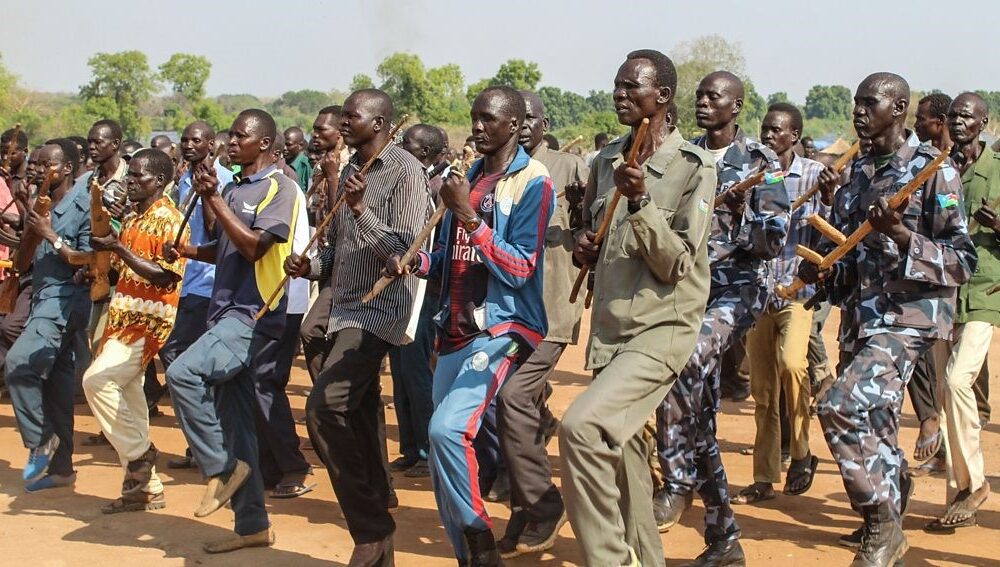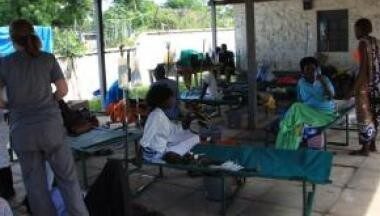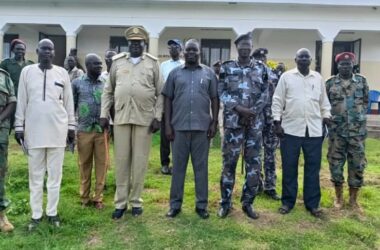By Yiep Joseph
Members of Civil society have called on the Transitional National Committee (NTC) to ensure inclusivity in phase two of the Transitional Security Arrangement.
The activists appeal followed the announcement by NTC to commence with Phase Two of the Transitional Security Arrangement in September this year.
The NTC is a body tasked with overseeing the implementation of the 2018 peace deal.
In an interview with this outlet, Ter Manyang, the Executive Director of the Centre for Peace and Advocacy (CPA), urged the committee to double efforts to engage parties to cease hostilities to allow inclusive participation in the process.
After the arrest of Dr. Riek Machar Teny in March this year, a series of armed confrontations between the South Sudan People’s Liberation Army in Opposition (SPLA-IO) and the South Sudan People’s Defense Forces has been reported.
Despite the government’s and peace monitor’s calls, the ceasefire continues to experiences persistent violations according to reports.
Activist Manyang expressed that armed confrontation between SSPDF and SPLA-IO should be brought to an end for inclusive unification of forces to be achieved.
With just a month to the date echoed by NTC for the commencement of Phase Two, cantonment sites remain deserted while both the SPLA-IO and the SSPDF continue attacking one another.
“The SPLA-IO’s participation is indeed essential, especially given their role in the 2018 peace agreement. If they are not integrated into phase two, the whole stabilization process could be jeopardized,” Manyang said.
“The security arrangements in South Sudan have always been a contentious issue, and any significant exclusion can lead to further divisions and instability,” he added.
The activist urged the NTC to consider inclusivity in phase two of the security arrangement.
“Exclusion could erode trust among different factions. Hopefully, the NTC can recognize that a holistic approach, which involves all key players, is necessary for true stabilization,” he said.
He said that the SPLA-IO forces, under the leadership of Riek Machar, hold considerable sway, and their absence in Phase Two of the unification of forces could undermine the progress made so far.
Gai Ngok, a civil society activist based in Canada, reiterated the same call, adding that the release of Dr. Machar and political detainees as well as the cessation of hostilities remain vital for the success of unification of forces.
He appealed to the leadership of the NTC to seek necessary avenues to stop the ongoing armed confrontation among parties to the 2018 peace agreement to ease sincere unification of forces for the country.
In a separate statement, the SPLA-IO condemned the commencement of security in September as announced by the NTC and called for the release of Dr. Machar and other opposition leaders.
SPLA-IO spokesperson Col. Lam Paul Gabriel said in a statement extended to the media that the group demanded the release of Dr. Machar and other opposition leaders in detention.
“The SPLA-IO hereby categorically rejects the so-called phase two of the security arrangements as long as H.E. Riek Machar Teny Dhurgon (PhD), the FVP and Commander in Chief of the SPLA-IO, Lt. Gen. Gabriel Duop Lam, and all those illegally and cowardly detained are released to pave the way for a genuine dialogue.” The statement partly read.
The opposition called on the Ceasefire and Transitional Security Arrangements Monitoring and Verification Mechanism (CTSAMVM) to ensure neutrality in the processes of force unification and violation reports.
It works with the peace mechanisms to coordinate activities and also lobby for funds so that the mechanisms implement and execute their objectives.
Chapter Two of the R-ARCSS entails security arrangements and government and opposition forces to canton and train unified forces during a three-year transitional period leading into elections.
Under the 2018 peace deal, South Sudan is to graduate 83,000 unified forces drawn from the various parties to take charge of security of the country during the ongoing transitional period.
In 2022, the transitional government of national unity commenced the graduation of necessary unified forces comprising the army, police, national security, and other units to form the national army for South Sudan.
At least 53 thousand soldiers graduated as the first batch of the unified forces.
In August 2024, the outgoing interim chairperson of the peace monitoring mechanism R-JMEC said most of the Necessary Unified Forces (NUF) in training and cantonment sites had deserted their bases due to lack of food, water, shelter, and medicines.
Amb. Charles Tai Gituai revealed that since the graduation of 53,000 unified forces in phase one, only 7 percent of the 83,000 combatants have been deployed.



